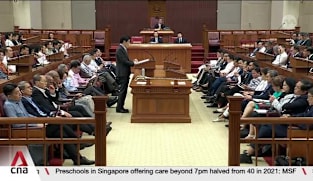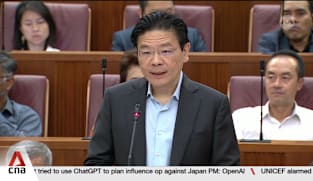Budget 2024 debate: Patrick Tay on financial support for the involuntarily unemployed
In Parliament on Tuesday (Feb 27), MP and NTUC Assistant Secretary-General Patrick Tay welcomed a new temporary financial support scheme for involuntarily displaced workers as they undergo training or look for better-fitting jobs. With details of the scheme yet to be announced, he urged the Government to extend coverage to as many workers as possible, including the “broad middle”, not just those in the lower-income bracket. The amount of support should be sufficient, based on a “reasonable societal standard”, he said; it should last long enough for effective reskilling and job matching; and it must be easy and quick to access. Workers, on their part, must actively attend training and search for jobs to ensure the affordability and sustainability of the scheme. Mr Tay also called for a S$4,000 SkillsFuture Credit top-up to be extended beyond mid-career workers to other vulnerable groups such as the retrenched, unemployed and freelancers. He suggested that it cover not only certifiable courses but coaching and mentoring which can also aid employment outcomes. He also asked for Career Conversion Programmes to cover more sectors and industries, and for the training allowance to be increased to keep pace with rising median wages, household expenditures and cost of living.
In Parliament on Tuesday (Feb 27), MP and NTUC Assistant Secretary-General Patrick Tay welcomed a new temporary financial support scheme for involuntarily displaced workers as they undergo training or look for better-fitting jobs. With details of the scheme yet to be announced, he urged the Government to extend coverage to as many workers as possible, including the “broad middle”, not just those in the lower-income bracket. The amount of support should be sufficient, based on a “reasonable societal standard”, he said; it should last long enough for effective reskilling and job matching; and it must be easy and quick to access. Workers, on their part, must actively attend training and search for jobs to ensure the affordability and sustainability of the scheme. Mr Tay also called for a S$4,000 SkillsFuture Credit top-up to be extended beyond mid-career workers to other vulnerable groups such as the retrenched, unemployed and freelancers. He suggested that it cover not only certifiable courses but coaching and mentoring which can also aid employment outcomes. He also asked for Career Conversion Programmes to cover more sectors and industries, and for the training allowance to be increased to keep pace with rising median wages, household expenditures and cost of living.



















